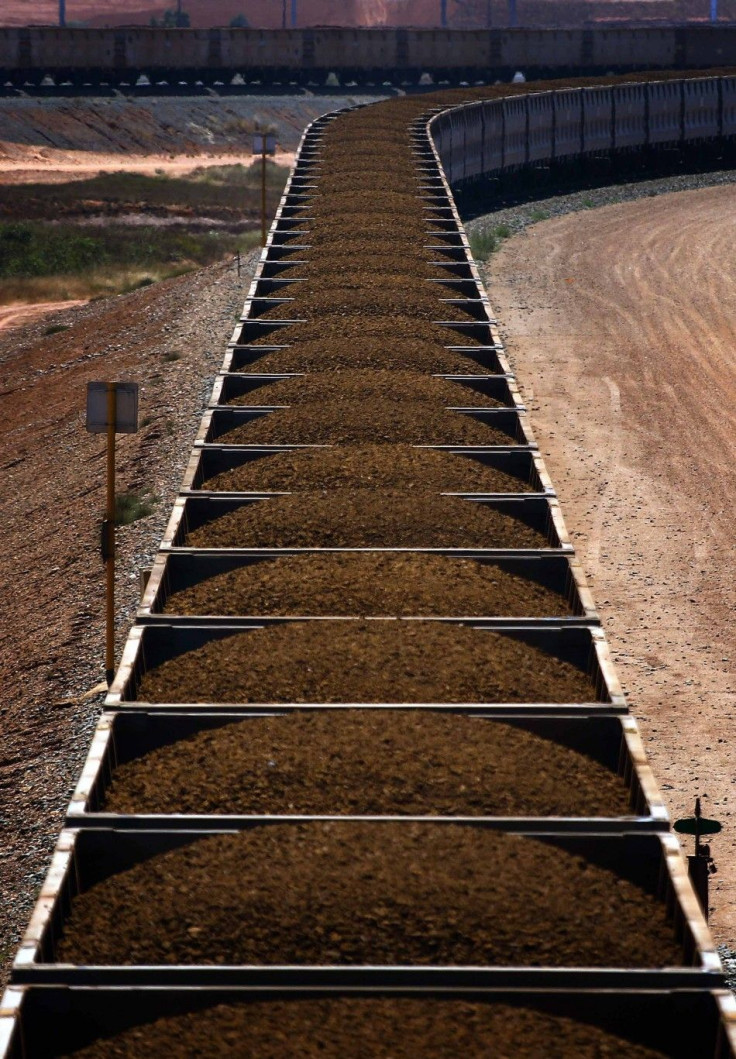Australian Iron Ore Miners In Jeopardy As China Slashes Tax To Help Domestic Producers

China will be effecting a tax cut for its domestic iron ore miners. The existing resource tax on iron ore will be slashed by 40 percent effective May 1, China’s State Council, or cabinet, said on Wednesday. It is equivalent to a slash of 6 yuan (AU$1.27) per tonne of iron ore produced.
The move is indicative of China’s efforts to shield its own iron ore industry at the expense of foreign miners. But the subsidy is expected to further hurt prices of the steelmaking ingredient and in the long run, jeopardise Australian iron ore miners. The latter had expected that the low prices will weed out uncompetitive Chinese miners. "The subsidies, if implemented, will sustain domestic production, increase the global supply of iron ore and result in prices slumping further," Wu Zhili, an analyst at Shenhua Futures in Shenzhen, told Bloomberg.
Prices of iron ore in the global market had dropped to a 10-year low last week, by US$47 per tonne over the Easter weekend. The prevailing trend has worried producers, prompting adjustments in capital expenditures as well as threatening mine closures and layoffs. China’s latest move will surely hurt the industry and propel further down the prices of iron ore.
The prevailing supply and demand imbalance is expected to last longer, economist Ross Garnaut wrote in The Australian Financial Review. Although he believed China will continue to build new urban apartments, railway systems and airports, it won’t be as massive as before. They will continue to build, “but less each year." Chinese production is estimated to drop to about 600 million tonnes in 2030 from the current 800 million tonnes.
China's iron ore demand is supported by local mines by about 20 percent. The rest is bought overseas. The country has long been regarded as the top purchaser of seaborne ore. “The Chinese tax cut will further stoke speculation that Australian miners, rather than Chinese, will be the victims of the iron ore price slump,” the Sydney Morning Herald reports.
The iron ore tax cut, according to former Alberto Calderon, BHP Billiton executive and now Orica boss, reflects what China did to the global aluminium and thermal coal industry. "Yes there will be closures but new and more efficient mines are being built. China will repeat what it has done already in aluminium and thermal coal: create an oversupply of iron ore that will benefit them as a consumer country."
When this happens, prices “will revert to marginal cost,” probably even lower than $70 per tonne of iron ore “for some years." Unfortunately, Calderon believed the ones to be badly hurt will be the Australian miners because most of the excess tonnes in the global iron ore come from Australia. Moreover, Dai Zhihao, president of the Baoshan Iron and Steel Corp, told the official Xinhua news agency on Tuesday that China’s steel consumption and production “could already have peaked now.”
To report probleams or to leave feedback about this article, email: e.misa@ibtimes.com.au.





















